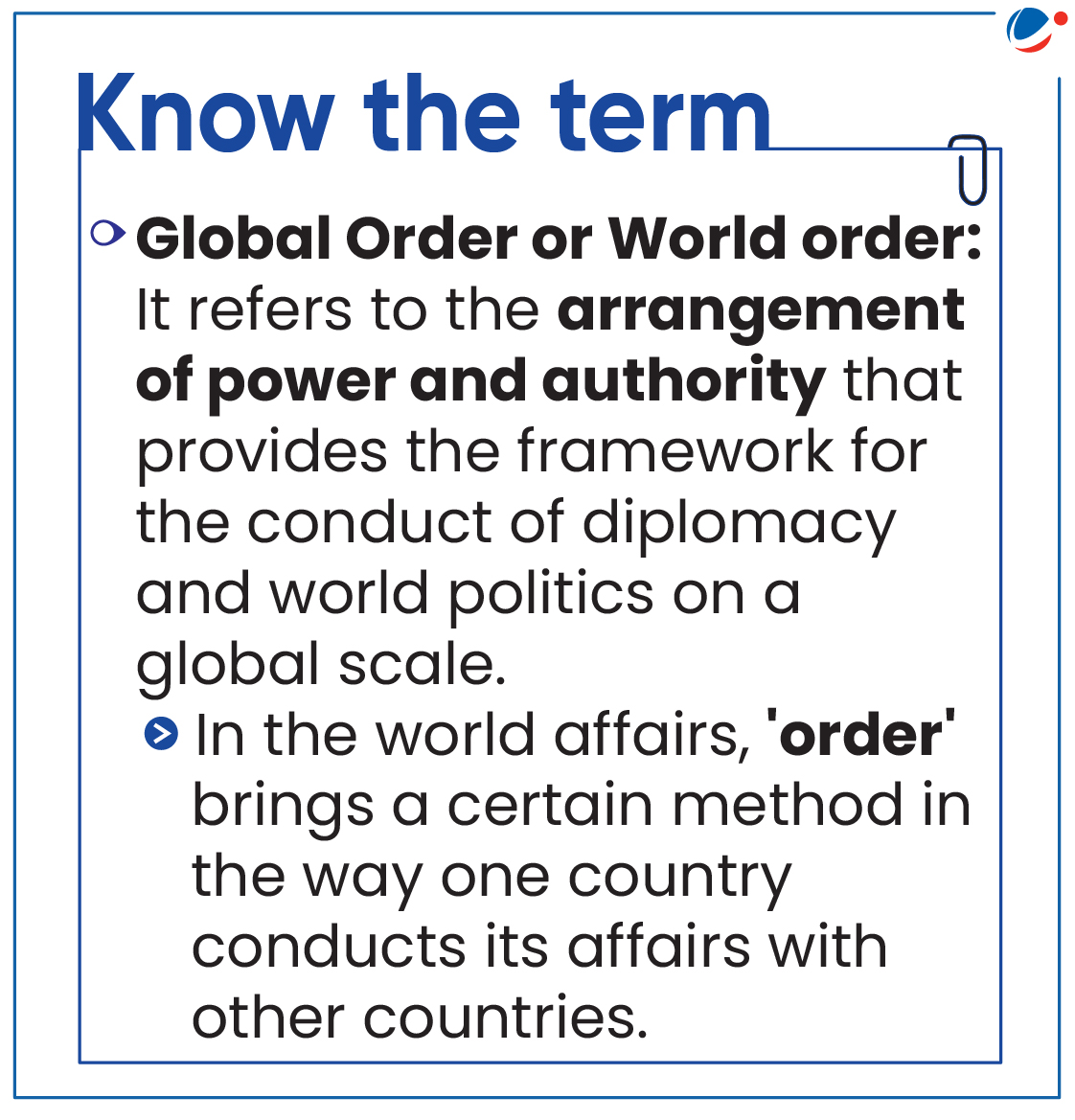Why in the News?
India's External Affairs Minister called for a fair and representative global order at the first BIMSTEC Traditional Music Festival.
Why global order is not fair and representative?

- Unequal Representation in Global Institutions: E.g., The P5 countries (China, France, Russia, UK, and US) hold permanent status and veto powers, disproportionately influencing United Nations Security Council (UNSC) decisions and sidelining non-permanent members.
- Marginalization of the Global South: Global North (industrialized countries) has 9 times more Voting Power at the IMF Than the Global South (Developing or underdeveloped countries).
- E.g., United States has 16.49% of the votes on the IMF's board despite representing only 4.22% of the world population.
- Ineffective Multilateralism: Powerful nations bypass multilateral forums undermining truly global cooperation leading to fragmented and interest-driven global responses.
- E.g., United States is set to officially withdraw from Paris Climate Agreement and World Health Organization (WHO).
- Trade as Instrument of Geopolitical Power: E.g., United States' 25 % tariff on goods imported from India, EU's carbon tax etc. highlight the asymmetry in trade relationships.
- Climate Change Inequities: Industrialised countries like United States, account for 20% of all historical emissions and the consequences disproportionately affect countries in Global South.
- E.g., In 2024, the Philippines faced an extreme heatwave causing drought and heat-related deaths.
- Technology and Knowledge Divide: E.g.,100 companies, mostly in the United States and China, are behind 40 % of world's private investment in research and development, highlighting a sharp concentration of power. (Technology and Innovation Report 2025).
Way forward for a Fair & Representative Global Order
- Multilateral Reforms: E.g., G4 Ministers representing Brazil, Germany, India, and Japan support each other's bids for permanent seats on the United Nations Security Council (UNSC).
- Decolonising Multilateralism: Initiatives such as Voice of the Global South Summit exemplify India's potential as a champion for a more equitable world order.
- Implement Rio de Janeiro Declaration: Adopted in the 17th BRICS Summit, it advocates for inclusive AI governance and realignment of IMF quotas to better reflect current global realities and sovereign interests.
- Bridging the Digital & Technology Divide: Promote open-source, inclusive digital public infrastructure.
- E.g., India's model of Digital Public Infrastructure (DPI) was held up as a blueprint for the Global South.
- Climate Justice: Strengthen frameworks like Common but Differentiated Responsibilities (CBDR), updating them to meet contemporary economic and climate challenges.
Conclusion
A fair global order needs inclusive institutions, equitable finance, and balanced North–South cooperation, with emerging powers like India bridging gaps for a just and effective world system.






